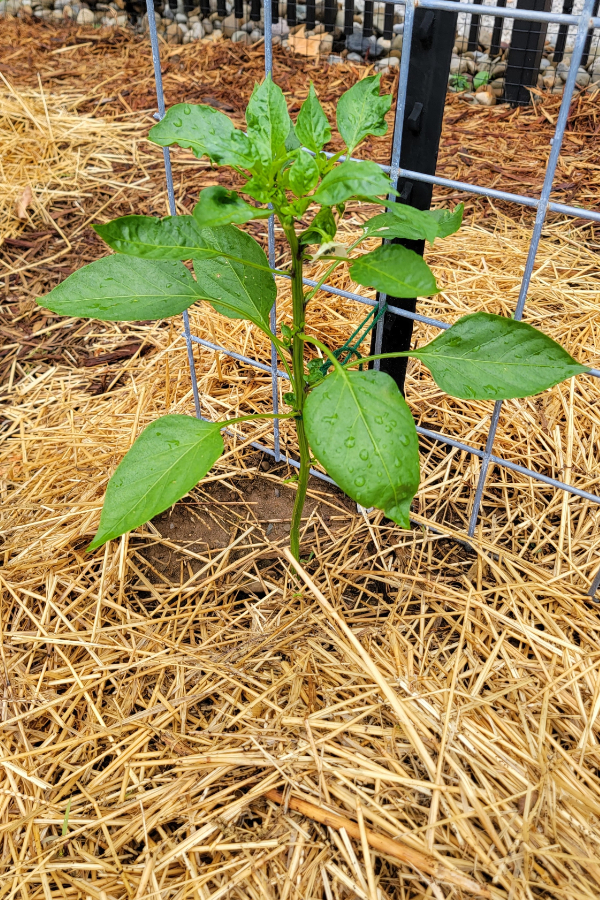Organic Vs. Synthetic Fertilizers: Which Is Best for Nurturing Healthy Pepper Plants?
In the world of supporting healthy and balanced pepper plants, the option between synthetic and organic fertilizers stands as a crucial decision with far-ranging ramifications. While both alternatives objective to provide essential nutrients to sustain plant growth, the nuances of their influence on the dirt, plant health, and the setting stimulate an argument that mirrors throughout the gardening community. Recognizing the distinct benefits and prospective pitfalls of each plant food type is critical for pepper cultivators seeking to enhance their yields while preserving a sustainable and eco-conscious method.
Advantages of Organic Plant Foods
Organic fertilizers supply a lasting and environmentally-friendly strategy to nourishing pepper plants, giving vital nutrients without using artificial chemicals. These natural plant foods are stemmed from natural sources such as garden compost, manure, bone meal, and algae, promoting soil wellness and biodiversity. Unlike synthetic plant foods, natural options launch nutrients gradually, making sure a constant and balanced supply for pepper plants to flourish.
One substantial benefit of organic plant foods is their capacity to improve soil framework and water retention. By enhancing soil health and wellness, natural fertilizers promote valuable microbial activity, which aids in nutrient uptake by pepper plants. In addition, natural fertilizers minimize the threat of chemical run-off, protecting water sources from air pollution and protecting the setting.
Furthermore, organic plant foods add to long-term soil fertility by advertising the development of beneficial dirt microorganisms. These microorganisms assist damage down natural matter, releasing nutrients in a type that is conveniently available to pepper plants. best fertilizers for peppers. By cultivating a healthy soil environment, natural plant foods support lasting pepper cultivation practices that benefit both plants and the environment
Disadvantages of Artificial Fertilizers
Synthetic fertilizers, unlike their natural equivalents, present different negative aspects when used to nourish pepper plants, impacting both plant health and ecological sustainability. One significant downside of artificial plant foods is their propensity to leach nutrients from the soil quickly. This rapid leaching can cause vitamins and mineral imbalances in the soil, triggering plants to experience from shortages or toxicities. Furthermore, artificial fertilizers can harm advantageous soil microorganisms, such as earthworms and valuable microorganisms, interrupting the soil ecosystem's equilibrium.
Furthermore, the overuse of artificial plant foods can add to water air pollution. Excess plant foods not taken in by plants can wash away into water bodies, resulting in eutrophication, where algae blooms diminish oxygen levels in the water, damaging water life. Synthetic plant foods are usually acquired from non-renewable resources, such as fossil gas, contributing to carbon discharges and ecological degradation throughout their production.
Nutrient Absorption Contrast
When comparing natural and artificial fertilizers in terms of nutrient absorption, natural fertilizers have the benefit of offering an extra well balanced and slow-release source of nutrients. Organic plant foods contain a range of macro and trace elements that are not just helpful for the plants but also advertise healthy dirt microbial task, which aids in nutrient uptake.
Moreover, organic plant foods boost dirt structure and water retention capacity, enabling pepper plants to gain access to nutrients extra successfully. This improved soil high quality assists in origin growth, allowing much better nutrient absorption. Synthetic plant foods, although originally boosting plant growth as a result of their high nutrient focus, might hinder long-term nutrient absorption by degrading dirt wellness with time.
Ecological Influence Factors To Consider

On the various other hand, artificial plant foods, although frequently more focused and right away offered to plants, can have damaging effects on the setting if not applied appropriately (best fertilizers for peppers). Their production requires high power inputs, leading to greenhouse gas exhausts and adding to environment change. Additionally, the Website runoff of excess synthetic plant foods can contaminate water resources, leading to eutrophication and hurting marine communities.
Finest Plant Food Practices for Peppers
When feeding pepper plants, optimizing nutrient uptake and reducing environmental effect are vital factors to consider. To achieve this, it is vital to comply with ideal plant food techniques customized to the specific needs of pepper plants. One important method is to execute a dirt test before applying any kind of fertilizers. This test can determine the pH level of the dirt and recognize any nutrient deficiencies, assisting you in picking one of the most suitable fertilizer formulation.
One more crucial method is to fertilize pepper plants at the correct time. Typically, peppers take check advantage of obtaining fertilizer at planting and afterwards once more when they start to flower. Over-fertilizing can lead to vitamins and mineral inequalities and damage the plants, so it is important to follow recommended application prices.
In addition, picking a balanced fertilizer with an NPK proportion that fits pepper plants' demands is fundamental. Organic plant foods, such as compost or manure, can be excellent selections as they launch nutrients slowly and boost soil framework in time. However, artificial fertilizers can offer a quick nutrient increase when needed. Inevitably, integrating synthetic and organic fertilizers sensibly can help nurture healthy and balanced pepper plants while lessening environmental impact.
Conclusion

Organic fertilizers provide an environmentally-friendly and lasting method to beneficial pepper plants, giving important nutrients without the usage of artificial chemicals. Unlike artificial fertilizers, organic choices launch nutrients gradually, ensuring a well balanced and steady supply for pepper plants to flourish.
Artificial plant foods, in comparison to their natural equivalents, pose different downsides when made use of to nurture pepper plants, influencing both plant health and environmental sustainability. When comparing organic and synthetic fertilizers in terms of nutrient absorption, organic plant foods have the benefit of providing a much more well balanced and slow-release resource of nutrients.Furthermore, organic fertilizers enhance soil structure and water retention capacity, allowing pepper plants to access nutrients much more effectively.